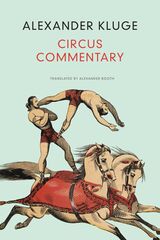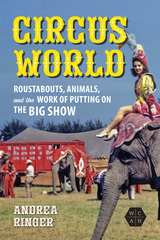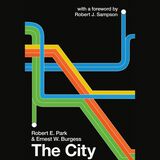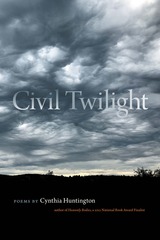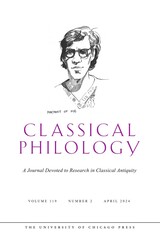659 start with A start with A
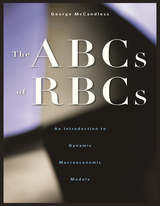
The ABCs of RBCs is the first book to provide a basic introduction to Real Business Cycle (RBC) and New-Keynesian models. These models argue that random shocks—new inventions, droughts, and wars, in the case of pure RBC models, and monetary and fiscal policy and international investor risk aversion, in more open interpretations—can trigger booms and recessions and can account for much of observed output volatility.
George McCandless works through a sequence of these Real Business Cycle and New-Keynesian dynamic stochastic general equilibrium models in fine detail, showing how to solve them, and how to add important extensions to the basic model, such as money, price and wage rigidities, financial markets, and an open economy. The impulse response functions of each new model show how the added feature changes the dynamics.
The ABCs of RBCs is designed to teach the economic practitioner or student how to build simple RBC models. Matlab code for solving many of the models is provided, and careful readers should be able to construct, solve, and use their own models.
In the tradition of the “freshwater” economic schools of Chicago and Minnesota, McCandless enhances the methods and sophistication of current macroeconomic modeling.
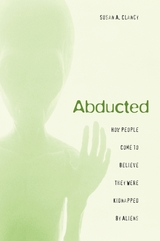
They are tiny. They are tall. They are gray. They are green. They survey our world with enormous glowing eyes. To conduct their shocking experiments, they creep in at night to carry humans off to their spaceships. Yet there is no evidence that they exist at all. So how could anyone believe he or she was abducted by aliens? Or want to believe it?
To answer these questions, psychologist Susan Clancy interviewed and evaluated "abductees"--old and young, male and female, religious and agnostic. She listened closely to their stories--how they struggled to explain something strange in their remembered experience, how abduction seemed plausible, and how, having suspected abduction, they began to recollect it, aided by suggestion and hypnosis.
Clancy argues that abductees are sane and intelligent people who have unwittingly created vivid false memories from a toxic mix of nightmares, culturally available texts (abduction reports began only after stories of extraterrestrials appeared in films and on TV), and a powerful drive for meaning that science is unable to satisfy. For them, otherworldly terror can become a transforming, even inspiring experience. "Being abducted," writes Clancy, "may be a baptism in the new religion of this millennium." This book is not only a subtle exploration of the workings of memory, but a sensitive inquiry into the nature of belief.

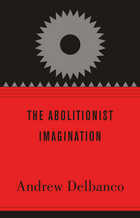
The abolitionists of the mid-nineteenth century have long been painted in extremes--vilified as reckless zealots who provoked the catastrophic bloodletting of the Civil War, or praised as daring and courageous reformers who hastened the end of slavery. But Andrew Delbanco sees abolitionists in a different light, as the embodiment of a driving force in American history: the recurrent impulse of an adamant minority to rid the world of outrageous evil.
Delbanco imparts to the reader a sense of what it meant to be a thoughtful citizen in nineteenth-century America, appalled by slavery yet aware of the fragility of the republic and the high cost of radical action. In this light, we can better understand why the fiery vision of the "abolitionist imagination" alarmed such contemporary witnesses as Herman Melville and Nathaniel Hawthorne even as they sympathized with the cause. The story of the abolitionists thus becomes both a stirring tale of moral fervor and a cautionary tale of ideological certitude. And it raises the question of when the demand for purifying action is cogent and honorable, and when it is fanatic and irresponsible.
Delbanco's work is placed in conversation with responses from literary scholars and historians. These provocative essays bring the past into urgent dialogue with the present, dissecting the power and legacies of a determined movement to bring America's reality into conformity with American ideals.
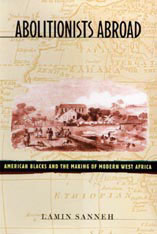
In 1792, nearly 1,200 freed American slaves crossed the Atlantic and established themselves in Freetown, West Africa, a community dedicated to anti-slavery and opposed to the African chieftain hierarchy that was tied to slavery. Thus began an unprecedented movement with critical long-term effects on the evolution of social, religious, and political institutions in modern Africa.
Lamin Sanneh's engrossing book narrates the story of freed slaves who led efforts to abolish the slave trade by attacking its base operation: the capture and sale of people by African chiefs. Sanneh's protagonists set out to establish in West Africa colonies founded on equal rights and opportunity for personal enterprise, communities that would be havens for ex-slaves and an example to the rest of Africa. Among the most striking of these leaders is the Nigerian Samuel Ajayi Crowther, a recaptured slave who joined a colony in Sierra Leone and subsequently established satellite communities in Nigeria. The ex-slave repatriates brought with them an evangelical Christianity that encouraged individual spirituality--a revolutionary vision in a land where European missionaries had long assumed they could Christianize the whole society by converting chiefs and rulers.
Tracking this potent African American anti-slavery and democratizing movement through the nineteenth century, Lamin Sanneh draws a clear picture of the religious grounding of its conflict with the traditional chieftain authorities. His study recounts a crucial development in the history of West Africa.

What can abortion and divorce laws in other countries teach Americans about these thorny issues? In this incisive new book, noted legal scholar Mary Ann Glendon looks at the experiences of twenty Western nations, including the United States, and shows how they differ, subtly but profoundly, from one another. Her findings challenge many widely held American beliefs. She reveals, for example, that a compromise on the abortion question is not only possible but typical, even in societies that are deeply divided on the matter. Regarding divorce, the extensive reliance on judicial discretion in the United States is not the best way to achieve fairness in arranging child support, spousal maintenance, or division of property—to judge by the experience of other countries. Glendon's analysis, by searching out alternatives to current U.S. practice, identities new possibilities of reform in these areas. After the late 1960s abortion and divorce became more readily available throughout the West—and most readily in this country—but the approach of American law has been anomalous. Compared with other Western nations, the United States permits less regulation of abortion in the interest of the fetus, provides less public support for maternity and child-rearing, and does less to mitigate the economic hardships of divorce through public assistance or enforcement of private obligations of support.
Glendon looks at these and more profound differences in the light of a powerful new method of legal interpretation. She sees each country's laws as part of a symbol-creating system that yields a distinctive portrait of individuals, human life, and relations between men and women, parents and children, families and larger communities. American law, more than that of other countries, employs a rhetoric of rights, individual liberty, and tolerance for diversity that, unchecked, contributes to the fragmentation of community and its values. Contemporary U.S. family law embodies a narrative about divorce, abortion, and dependency that is probably not the story most Americans would want to tell about these sad and complex matters but that is recognizably related to many of their most cherished ideals.
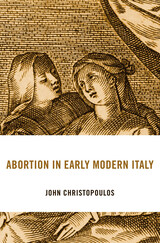
A comprehensive history of abortion in Renaissance Italy.
In this authoritative history, John Christopoulos provides a provocative and far-reaching account of abortion in sixteenth- and seventeenth-century Italy. His poignant portraits of women who terminated or were forced to terminate pregnancies offer a corrective to longstanding views: he finds that Italians maintained a fundamental ambivalence about abortion. Italians from all levels of society sought, had, and participated in abortions. Early modern Italy was not an absolute anti-abortion culture, an exemplary Catholic society centered on the “traditional family.” Rather, Christopoulos shows, Italians held many views on abortion, and their responses to its practice varied.
Bringing together medical, religious, and legal perspectives alongside a social and cultural history of sexuality, reproduction, and the family, Christopoulos offers a nuanced and convincing account of the meanings Italians ascribed to abortion and shows how prevailing ideas about the practice were spread, modified, and challenged. Christopoulos begins by introducing readers to prevailing ideas about abortion and women’s bodies, describing the widely available purgative medicines and surgeries that various healers and women themselves employed to terminate pregnancies. He then explores how these ideas and practices ran up against and shaped theology, medicine, and law. Catholic understanding of abortion was changing amid religious, legal, and scientific debates concerning the nature of human life, women’s bodies, and sexual politics. Christopoulos examines how ecclesiastical, secular, and medical authorities sought to regulate abortion, and how tribunals investigated and punished its procurers—or did not, even when they could have. Abortion in Early Modern Italy offers a compelling and sensitive study of abortion in a time of dramatic religious, scientific, and social change.

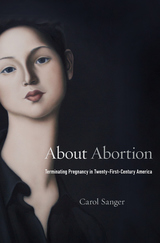
One of the most private decisions a woman can make, abortion is also one of the most contentious topics in American civic life. Protested at rallies and politicized in party platforms, terminating pregnancy is often characterized as a selfish decision by women who put their own interests above those of the fetus. This background of stigma and hostility has stifled women’s willingness to talk about abortion, which in turn distorts public and political discussion. To pry open the silence surrounding this public issue, Sanger distinguishes between abortion privacy, a form of nondisclosure based on a woman’s desire to control personal information, and abortion secrecy, a woman’s defense against the many harms of disclosure.
Laws regulating abortion patients and providers treat abortion not as an acceptable medical decision—let alone a right—but as something disreputable, immoral, and chosen by mistake. Exploiting the emotional power of fetal imagery, laws require women to undergo ultrasound, a practice welcomed in wanted pregnancies but commandeered for use against women with unwanted pregnancies. Sanger takes these prejudicial views of women’s abortion decisions into the twenty-first century by uncovering new connections between abortion law and American culture and politics.
New medical technologies, women’s increasing willingness to talk online and off, and the prospect of tighter judicial reins on state legislatures are shaking up the practice of abortion. As talk becomes more transparent and acceptable, women’s decisions about whether or not to become mothers will be treated more like those of other adults making significant personal choices.
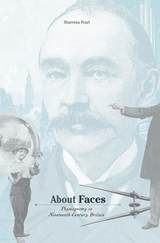
When nineteenth-century Londoners looked at each other, what did they see, and how did they want to be seen? Sharrona Pearl reveals the way that physiognomy, the study of facial features and their relationship to character, shaped the way that people understood one another and presented themselves.
Physiognomy was initially a practice used to get information about others, but soon became a way to self-consciously give information—on stage, in print, in images, in research, and especially on the street. Moving through a wide range of media, Pearl shows how physiognomical notions rested on instinct and honed a kind of shared subjectivity. She looks at the stakes for framing physiognomy—a practice with a long history—as a science in the nineteenth century.
By showing how physiognomy gave people permission to judge others, Pearl holds up a mirror both to Victorian times and our own.
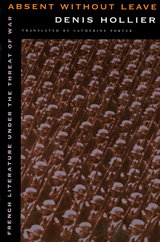
They were not the "Banquet Years," those anxious wartime years when poets and novelists were made to feel embarrassed by their impulse to write literature. And yet it was the attitude of those writers and critics in the 1930s and 1940s that shaped French literature--the ideas of Derrida, Foucault, de Man, Deleuze, and Ricoeur--and has so profoundly influenced literary enterprise in the English-speaking world since 1968. This literary history, the prehistory of postmodernism, is what Denis Hollier recovers in his interlocking studies of the main figures of French literary life before the age of anxiety gave way to the era of existentialist commitment.
Georges Bataille, Michel Leiris, Roger Caillois, André Malraux, the early Jean-Paul Sartre are the figures Hollier considers, writers torn between politics and the pleasures of the text. They appear here uneasily balancing the influences of the philosopher and the man of action. These studies convey the paradoxical heroism of writers fighting for a world that would extend no rights or privileges to writers, writing for a world in which literature would become a reprehensible frivolity. If the nineteenth century was that of the consecration of the writer, this was the time for their sacrificial death, and Hollier captures the comical pathos of these writers pursuing the ideal of "engagement" through an exercise in dispossession. His work identifies, as none has before, the master plot for literature that was crafted in the 1940s, a plot in which we are still very much entangled.

William Seitz was a creative witness to one of the most exciting artistic upheavals of our time. His analysis of American Abstract Expressionism is the unique testament of one who was there at the Cedar Bar and at The Club in the early 1950s, sharing the milieu of the painters about whom he writes-Gorky, de Kooning, Hofmann, Motherwell, Rothko, and Tobey. Seitz was finely tuned to their idiosyncratic development, able to document at first hand the influences entering their discourse, whether Suzuki or Empson, Klee or the French existentialists. Beyond this, the uncertainty and verbal confusion of the time, Seitz takes the reader directly to the works of art, probing not what the artists were saying, but what they were painting.
A painter himself, he could explore the passions and methods of Abstract Expressionism with the insight and technical precision of one who had labored in the studio. Seitz maintains a profound respect for the mysterious power of the individual talent, for the artist as an intellectual, and for painting as a form of knowledge. His work, confined to the "underground" of microfilm after it was completed in 1955, stands alone in conveying the anxiety, exhilaration, and richness of a movement racing ahead while its criteria were still being formed. Lavishly illustrated with over 300 paintings, many in full color, Abstract Expressionist Painting in America is a book that Motherwell describes in his foreword as "unsurpassed...in the literature of Abstract Expressionism, but also sui generis in the scholarship of Modernism."

The university today is under attack from all sides. Parents and students resent the escalating costs of education and wonder where the money is being spent. Aspiring scholars feel betrayed by an institution that prepares them for nonexistent jobs. Critics on the right condemn the teachers who neglect "the canon" while critics on the left condemn the creeping corporatism on campus. Politicians seek greater control over the conduct of research and add new conditions to the use of government funds. Worst of all, the academics are increasingly uneasy in an environment that fosters competition, discourages cooperation, and has made "publish or perish" a condition of survival.
Donald Kennedy, the former president of Stanford University and currently a member of its faculty, has been at the front lines of the issues confounding the academy today. In this important new book, he brings his experience and concern to bear on the present state of the university. He examines teaching, graduate training, research, and their ethical context in the research university. Aware of the numerous pressures that academics face, from the pursuit of open inquiry in the midst of culture wars, to confusion and controversy over the ownership of ideas, to the scramble for declining research funds and facilities, he explores the whys and wherefores of academic misconduct, be it scholarly, financial, or personal.
Kennedy suggests that meaningful reform cannot take place until more rigorous standards of academic responsibility--to students, the university, and the public--are embraced by both faculty and the administration. With vision and compassion, he offers an important antidote to recent attacks from without that decry the university and the professoriate, and calls upon the college community to counter those attacks by looking within and fulfilling its duties.
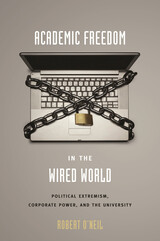
In this passionately argued overview, a longtime activist-scholar takes readers through the changing landscape of academic freedom. From the aftermath of September 11th to the new frontier of blogging, Robert O'Neil examines the tension between institutional and individual interests. Many cases boil down to a hotly contested question: who has the right to decide what is taught in the classroom?
O'Neil shows how courts increasingly restrict professorial judgment, and how the feeble protection of what is posted on the Internet and written in email makes academics more vulnerable than ever. Even more provocatively, O'Neil argues, the newest threats to academic freedom come not from government, but from the private sector. Corporations increasingly sponsor and control university-based research, while self-appointed watchdogs systematically harass individual teachers on websites and blogs. Most troubling, these threats to academic freedom are nearly immune from legal recourse.
Insisting that new concepts of academic freedom, and new strategies for maintaining it are needed, O'Neil urges academics to work together--and across rigid and simplistic divisions between "left" and "right."


Most informed observers would agree that an inordinate proportion of the most exciting, innovative, and ground-breaking work in the field of historical scholarship since the First World War has taken place in the French university system. In this book Keylor describes the establishment of history as an academic discipline in France between 1870 and 1914 and the formation of the "scientific" school of historical writing in the French university system.
In a lucid study the author explains the complex process by which the new discipline of history was organized, furnished with a set of professional goals, and provided with the theoretical and institutional means of achieving them. Keylor discusses the multifarious problems that confronted the university historians as they sought to transform their craft from an avocation of amateurs into a scholarly discipline pursued by trained specialists employed by the university system: the growing tensions between the universitaires and the literary historians outside the academy; the conflict between the "scientific" claims of the French historical school and its commitment to employ history for patriotic and political ends; and the interdisciplinary rivalries between academic history and the fledgling discipline of sociology.
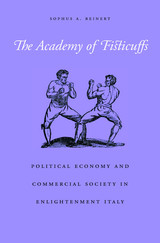
The terms “capitalism” and “socialism” continue to haunt our political and economic imaginations, but we rarely consider their interconnected early history. Even the eighteenth century had its “socialists,” but unlike those of the nineteenth, they paradoxically sought to make the world safe for “capitalists.” The word “socialists” was first used in Northern Italy as a term of contempt for the political economists and legal reformers Pietro Verri and Cesare Beccaria, author of the epochal On Crimes and Punishments. Yet the views and concerns of these first socialists, developed inside a pugnacious intellectual coterie dubbed the Academy of Fisticuffs, differ dramatically from those of the socialists that followed.
Sophus Reinert turns to Milan in the late 1700s to recover the Academy’s ideas and the policies they informed. At the core of their preoccupations lay the often lethal tension among states, markets, and human welfare in an era when the three were becoming increasingly intertwined. What distinguished these thinkers was their articulation of a secular basis for social organization, rooted in commerce, and their insistence that political economy trumped theology as the underpinning for peace and prosperity within and among nations.
Reinert argues that the Italian Enlightenment, no less than the Scottish, was central to the emergence of political economy and the project of creating market societies. By reconstructing ideas in their historical contexts, he addresses motivations and contingencies at the very foundations of modernity.

Many people in developing countries lack access to health technologies, even basic ones. Why do these problems in access persist? What can be done to improve access to good health technologies, especially for poor people in poor countries?
This book answers those questions by developing a comprehensive analytical framework for access and examining six case studies to explain why some health technologies achieved more access than others. The technologies include praziquantel (for the treatment of schistosomiasis), hepatitis B vaccine, malaria rapid diagnostic tests, vaccine vial monitors for temperature exposure, the Norplant implant contraceptive, and female condoms.
Based on research studies commissioned by the Bill & Melinda Gates Foundation to better understand the development, adoption, and uptake of health technologies in poor countries, the book concludes with specific lessons on strategies to improve access. These lessons will be of keen interest to students of health and development, public health professionals, and health technology developers—all who seek to improve access to health technologies in poor countries.
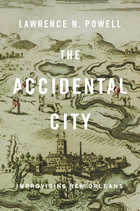
“Should stand for years as the definitive history of New Orleans’s first century.” —Jonathan Yardley, Washington Post
This is the story of a city that shouldn’t exist. In the seventeenth century, what is now America’s most beguiling metropolis was nothing more than a swamp: prone to flooding, infested with snakes, battered by hurricanes. But through the intense imperial rivalries of Spain, France, and England, and the ambitious, entrepreneurial merchants and settlers from four continents who risked their lives to succeed in colonial America, this unpromising site became a crossroads for the whole Atlantic world.
Lawrence N. Powell, a decades-long resident and observer of New Orleans, gives us the full sweep of the city’s history from its founding through Louisiana statehood in 1812. We see the Crescent City evolve from a French village, to an African market town, to a Spanish fortress, and finally to an Anglo-American center of trade and commerce. We hear and feel the mix of peoples, religions, and languages from four continents that make the place electric—and always on the verge of unraveling. The Accidental City is the story of land-jobbing schemes, stock market crashes, and nonstop squabbles over status, power, and position, with enough rogues, smugglers, and self-fashioners to fill a picaresque novel.
Powell’s tale underscores the fluidity and contingency of the past, revealing a place where people made their own history. This is a city, and a history, marked by challenges and perpetual shifts in shape and direction, like the sinuous river on which it is perched.

Described as “all under Heaven,” the Chinese empire might have extended infinitely, covering all worlds and cultures. That ideology might have been convenient for the state, but what did late imperial people really think about the scope and limits of the human community?
Writers of late imperial fiction and drama were, the author argues, deeply engaged with questions about the nature of the Chinese empire and of the human community. Fiction and drama repeatedly pose questions concerning relations both among people and between people and their possessions: What ties individuals together, whether permanently or temporarily? When can ownership be transferred, and when does an object define its owner? What transforms individual families or couples into a society?
Tina Lu traces how these political questions were addressed in fiction through extreme situations: husbands and wives torn apart in periods of political upheaval, families so disrupted that incestuous encounters become inevitable, times so desperate that people have to sell themselves to be eaten.
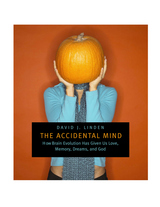
You've probably seen it before: a human brain dramatically lit from the side, the camera circling it like a helicopter shot of Stonehenge, and a modulated baritone voice exalting the brain's elegant design in reverent tones.
To which this book says: Pure nonsense. In a work at once deeply learned and wonderfully accessible, the neuroscientist David Linden counters the widespread assumption that the brain is a paragon of design--and in its place gives us a compelling explanation of how the brain's serendipitous evolution has resulted in nothing short of our humanity. A guide to the strange and often illogical world of neural function, The Accidental Mind shows how the brain is not an optimized, general-purpose problem-solving machine, but rather a weird agglomeration of ad-hoc solutions that have been piled on through millions of years of evolutionary history. Moreover, Linden tells us how the constraints of evolved brain design have ultimately led to almost every transcendent human foible: our long childhoods, our extensive memory capacity, our search for love and long-term relationships, our need to create compelling narrative, and, ultimately, the universal cultural impulse to create both religious and scientific explanations. With forays into evolutionary biology, this analysis of mental function answers some of our most common questions about how we've come to be who we are.
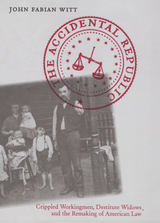
In the five decades after the Civil War, the United States witnessed a profusion of legal institutions designed to cope with the nation’s exceptionally acute industrial accident crisis. Jurists elaborated the common law of torts. Workingmen’s organizations founded a widespread system of cooperative insurance. Leading employers instituted welfare-capitalist accident relief funds. And social reformers advocated compulsory insurance such as workmen’s compensation.
John Fabian Witt argues that experiments in accident law at the turn of the twentieth century arose out of competing views of the loose network of ideas and institutions that historians call the ideology of free labor. These experiments a century ago shaped twentieth- and twenty-first-century American accident law; they laid the foundations of the American administrative state; and they occasioned a still hotly contested legal transformation from the principles of free labor to the categories of insurance and risk. In this eclectic moment at the beginnings of the modern state, Witt describes American accident law as a contingent set of institutions that might plausibly have developed along a number of historical paths. In turn, he suggests, the making of American accident law is the story of the equally contingent remaking of our accidental republic.
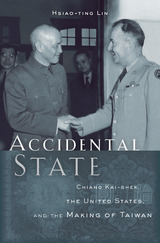
The existence of two Chinese states—one controlling mainland China, the other controlling the island of Taiwan—is often understood as a seemingly inevitable outcome of the Chinese civil war. Defeated by Mao Zedong, Chiang Kai-shek’s Nationalists fled to Taiwan to establish a rival state, thereby creating the “Two Chinas” dilemma that vexes international diplomacy to this day. Accidental State challenges this conventional narrative to offer a new perspective on the founding of modern Taiwan.
Hsiao-ting Lin marshals extensive research in recently declassified archives to show that the creation of a Taiwanese state in the early 1950s owed more to serendipity than careful geostrategic planning. It was the cumulative outcome of ad hoc half-measures and imperfect compromises, particularly when it came to the Nationalists’ often contentious relationship with the United States.
Taiwan’s political status was fraught from the start. The island had been formally ceded to Japan after the First Sino-Japanese War, and during World War II the Allies promised Chiang that Taiwan would revert to Chinese rule after Japan’s defeat. But as the Chinese civil war turned against the Nationalists, U.S. policymakers reassessed the wisdom of backing Chiang. The idea of placing Taiwan under United Nations trusteeship gained traction. Cold War realities, and the fear of Taiwan falling into Communist hands, led Washington to recalibrate U.S. policy. Yet American support of a Taiwan-based Republic of China remained ambivalent, and Taiwan had to eke out a place for itself in international affairs as a de facto, if not fully sovereign, state.
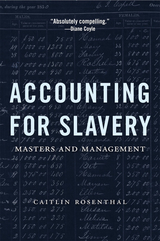
A Five Books Best Economics Book of the Year
A Politico Great Weekend Read
“Absolutely compelling.”
—Diane Coyle
“The evolution of modern management is usually associated with good old-fashioned intelligence and ingenuity…But capitalism is not just about the free market; it was also built on the backs of slaves.”
—Forbes
The story of modern management generally looks to the factories of England and New England for its genesis. But after scouring through old accounting books, Caitlin Rosenthal discovered that Southern planter-capitalists practiced an early form of scientific management. They took meticulous notes, carefully recording daily profits and productivity, and subjected their slaves to experiments and incentive strategies comprised of rewards and brutal punishment. Challenging the traditional depiction of slavery as a barrier to innovation, Accounting for Slavery shows how elite planters turned their power over enslaved people into a productivity advantage. The result is a groundbreaking investigation of business practices in Southern and West Indian plantations and an essential contribution to our understanding of slavery’s relationship with capitalism.
“Slavery in the United States was a business. A morally reprehensible—and very profitable business…Rosenthal argues that slaveholders…were using advanced management and accounting techniques long before their northern counterparts. Techniques that are still used by businesses today.”
—Marketplace
“Rosenthal pored over hundreds of account books from U.S. and West Indian plantations…She found that their owners employed advanced accounting and management tools, including depreciation and standardized efficiency metrics.”
—Harvard Business Review
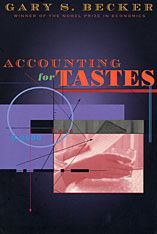


The master of Old Comedy.
Aristophanes of Athens, one of the world’s greatest comic dramatists, has been admired since antiquity for his iridescent wit and beguiling fantasy, exuberant language, and brilliant satire of the social, intellectual, and political life of Athens at its height. The Loeb Classical Library edition of his plays is in four volumes.
The Introduction to the edition is in Volume I. Also in the first volume is Acharnians, in which a small landowner, tired of the Peloponnesian War, magically arranges a personal peace treaty; and Knights, perhaps the most biting satire of a political figure (Cleon) ever written.
Three plays are in Volume II. Socrates’ “Thinkery” is at the center of Clouds, which spoofs untraditional techniques for educating young men. Wasps satirizes Athenian enthusiasm for jury service. In Peace, a rollicking attack on war-makers, the hero travels to heaven on a dung beetle to discuss the issues with Zeus.
The enterprising protagonists of Birds create a utopian counter-Athens ruled by birds. Also in Volume III is Lysistrata, in which our first comic heroine organizes a conjugal strike of young wives until their husbands end the war between Athens and Sparta. Women again take center stage in Women at the Thesmophoria, this time to punish Euripides for portraying them as wicked.
Frogs, in Volume IV, features a contest between the traditional Aeschylus and the modern Euripides, yielding both sparkling comedy and insight on ancient literary taste. In Assemblywomen Athenian women plot to save Athens from male misgovernance—with raucously comical results. Here too is Wealth, whose gentle humor and straightforward morality made it the most popular of Aristophanes’ plays from classical times to the Renaissance.

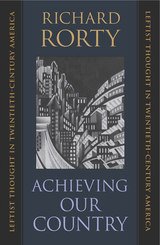
Must the sins of America's past poison its hope for the future? Lately the American Left, withdrawing into the ivied halls of academe to rue the nation's shame, has answered yes in both word and deed. In Achieving Our Country, one of America's foremost philosophers challenges this lost generation of the Left to understand the role it might play in the great tradition of democratic intellectual labor that started with writers like Walt Whitman and John Dewey.
How have national pride and American patriotism come to seem an endorsement of atrocities--from slavery to the slaughter of Native Americans, from the rape of ancient forests to the Vietnam War? Achieving Our Country traces the sources of this debilitating mentality of shame in the Left, as well as the harm it does to its proponents and to the country. At the center of this history is the conflict between the Old Left and the New that arose during the Vietnam War era. Richard Rorty describes how the paradoxical victory of the antiwar movement, ushering in the Nixon years, encouraged a disillusioned generation of intellectuals to pursue "High Theory" at the expense of considering the place of ideas in our common life. In this turn to theory, Rorty sees a retreat from the secularism and pragmatism championed by Dewey and Whitman, and he decries the tendency of the heirs of the New Left to theorize about the United States from a distance instead of participating in the civic work of shaping our national future.
In the absence of a vibrant, active Left, the views of intellectuals on the American Right have come to dominate the public sphere. This galvanizing book, adapted from Rorty's Massey Lectures of 1997, takes the first step toward redressing the imbalance in American cultural life by rallying those on the Left to the civic engagement and inspiration needed for "achieving our country."

Though Achilles the character is bound by fate and by narrative tradition, Achilles’s poem, the Iliad, was never fixed and monolithic in antiquity—it was multiform. And the wider epic tradition, from which the Iliad emerged, was yet more multiform. In Achilles Unbound, Casey Dué, building on nearly twenty years of work as coeditor of the Homer Multitext (www.homermultitext.org), explores both the traditionality and multiformity of the Iliad in a way that gives us a greater appreciation of the epic that has been handed down to us.
Dué argues that the attested multiforms of the Iliad—in ancient quotations, on papyrus, and in the scholia of medieval manuscripts—give us glimpses of the very long history of the text, access to even earlier Iliads, and a greater awareness of the mechanisms by which such a remarkable poem could be composed in performance. Using methodologies grounded in an understanding of Homeric poetry as a system, Achilles Unbound argues for nothing short of a paradigm shift in our approach to the Homeric epics, one that embraces their long evolution and the totality of the world of epic song, in which each performance was newly composed and received by its audience.

This immensely readable introduction to animal acoustics explains not only how animals hear but why they listen. It is a unique blend of audition, auditory anatomy, physics of sound, and methods of psychophysics, combined with behavior, natural history, and evolution. The Acoustic Sense of Animals is ideal for graduate and undergraduate courses, and for professionals in fields such as sensory physiology and animal behavior.
In his broadly comparative approach, Stebbins explores the function of hearing for each animal in its particular ecological setting and the significance of communication for members of a species. He renders the evolution of hearing with special emphasis on the peripheral auditory system and basic auditory function. Although ample evidence is brought to bear, both from the laboratory and from field studies, the book is not burdened with excessive detail. The writing is crisp, and the references are tailored to those most useful for nonspecialists.
The Acoustic Sense of Animals covers a complex field with balance and clarity within a solid evolutionary framework. Equally important, it conveys the controversy and excitement that will motivate students.
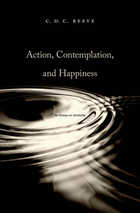
The notion of practical wisdom is one of Aristotle’s greatest inventions. It has inspired philosophers as diverse as Martin Heidegger, Hans-Georg Gadamer, Elizabeth Anscombe, Michael Thompson, and John McDowell. Now a leading scholar of ancient philosophy offers a challenge to received accounts of practical wisdom by situating it in the larger context of Aristotle’s views on knowledge and reality.
That happiness is the end pursued by practical wisdom is commonly agreed. What is disputed is whether happiness is to be found in the practical life of political action, in which we exhibit courage, temperance, and other virtues of character, or in the contemplative life, where theoretical wisdom is the essential virtue. C. D. C. Reeve argues that the dichotomy is bogus, that these lives are in fact parts of a single life, which is the best human one. In support of this view, he develops innovative accounts of many of the central notions in Aristotle’s metaphysics, epistemology, and psychology, including matter and form, scientific knowledge, dialectic, educatedness, perception, understanding, political science, practical truth, deliberation, and deliberate choice. These accounts are based directly on freshly translated passages from many of Aristotle’s writings. Action, Contemplation, and Happiness is an accessible essay not just on practical wisdom but on Aristotle’s philosophy as a whole.
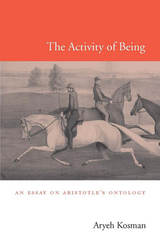
Understanding “what something is” is a project that has long occupied philosophers. Perhaps no thinker in the Western tradition has had more influence on how we approach this question than Aristotle, whose Metaphysics remains the locus classicus of rigorous examinations into the nature of being. Now, in an elegantly argued new study, Aryeh Kosman reinterprets Aristotle’s ontology and compels us to reexamine some of our most basic assumptions about the great philosopher’s thought.
For Aristotle, to ask “what something is” is to inquire into a specific mode of its being, something ordinarily regarded as its “substance.” But to understand substance, we need the concept of energeia—a Greek term usually translated as “actuality.” In a move of far-reaching consequence, Kosman explains that the correct translation of energeia is not “actuality” but “activity.” We have subtly misunderstood the Metaphysics on this crucial point, says Kosman. Aristotle conceives of substance as a kind of dynamic activity, not some inert quality. Substance is something actively being what it is.
Kosman demonstrates how this insight significantly alters our understanding of a number of important concepts in Aristotelian thought, from accounts of motion, consciousness, and essence to explanations of the nature of animal and divine being. Whether it is approached as an in-depth introduction to Aristotle’s metaphysics or as a highly original reassessment sure to spark debate, there can be no argument that The Activity of Being is a major contribution to our understanding of one of philosophy’s most important thinkers.

When Nero took the stage, the audience played along--or else. The drama thus enacted, whether in the theater proper or in the political arena, unfolds in all its rich complexity in Actors in the Audience. This is a book about language, theatricality, and empire--about how the Roman emperor dramatized his rule and how his subordinates in turn staged their response. The focus is on Nero: his performances onstage spurred his contemporaries to reflect on the nature of power and representation, and to make the stage a paradigm for larger questions about the theatricality of power. Through these portrayals by ancient writers, Shadi Bartsch explores what happens to language and representation when all discourse is distorted by the pull of an autocratic authority.
Some Roman senators, forced to become actors and dissimulators under the scrutinizing eye of the ruler, portrayed themselves and their class as the victims of regimes that are, for us, redolent of Stalinism. Other writers claimed that doublespeak--saying one thing and meaning two--was the way one could, and did, undo the constraining effects of imperial oppression. Tacitus, Suetonius, and Juvenal all figure in Bartsch's shrewd analysis of historical and literary responses to the brute facts of empire; even the Panegyricus of Pliny the Younger now appears as a reaction against the widespread awareness of dissimulation. Informed by theories of dramaturgy, sociology, new historicism, and cultural criticism, this close reading of literary and historical texts gives us a new perspective on the politics of the Roman empire--and on the languages and representation of power.
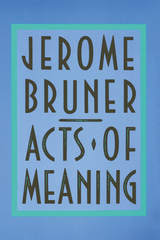
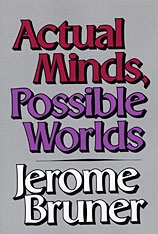
In this characteristically graceful and provocative book, Jerome Bruner, one of the principal architects of the cognitive revolution, sets forth nothing less than a new agenda for the study of mind. According to Professor Bruner, cognitive science has set its sights too narrowly on the logical, systematic aspects of mental life—those thought processes we use to solve puzzles, test hypotheses, and advance explanations. There is obviously another side to the mind—a side devoted to the irrepressibly human acts of imagination that allow us to make experience meaningful. This is the side of the mind that leads to good stories, gripping drama, primitive myths and rituals, and plausible historical accounts. Bruner calls it the “narrative mode,” and his book makes important advances in the effort to unravel its nature.
Drawing on recent work in literary theory, linguistics, and symbolic anthropology, as well as cognitive and developmental psychology, Professor Bruner examines the mental acts that enter into the imaginative creation of possible worlds, and he shows how the activity of imaginary world making undergirds human science, literature, and philosophy, as well as everyday thinking, and even our sense of self.
Over twenty years ago, Jerome Bruner first sketched his ideas about the mind’s other side in his justly admired book, On Knowing: Essays for the Left Hand. Actual Minds, Possible Worlds can be read as a sequel to this earlier work, but it is a sequel that goes well beyond its predecessor by providing rich examples of just how the mind’s narrative mode can be successfully studied. The collective force of these examples points the way toward a more humane and subtle approach to the investigation of how the mind works.
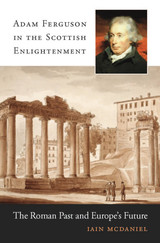
Although overshadowed by his contemporaries Adam Smith and David Hume, the Scottish philosopher Adam Ferguson strongly influenced eighteenth-century currents of political thought. A major reassessment of this neglected figure, Adam Ferguson in the Scottish Enlightenment: The Roman Past and Europe’s Future sheds new light on Ferguson as a serious critic, rather than an advocate, of the Enlightenment belief in liberal progress. Unlike the philosophes who looked upon Europe’s growing prosperity and saw confirmation of a utopian future, Ferguson saw something else: a reminder of Rome’s lesson that egalitarian democracy could become a self-undermining path to dictatorship.
Ferguson viewed the intrinsic power struggle between civil and military authorities as the central dilemma of modern constitutional governments. He believed that the key to understanding the forces that propel nations toward tyranny lay in analysis of ancient Roman history. It was the alliance between popular and militaristic factions within the Roman republic, Ferguson believed, which ultimately precipitated its downfall. Democratic forces, intended as a means of liberation from tyranny, could all too easily become the engine of political oppression—a fear that proved prescient when the French Revolution spawned the expansionist wars of Napoleon.
As Iain McDaniel makes clear, Ferguson’s skepticism about the ability of constitutional states to weather pervasive conditions of warfare and emergency has particular relevance for twenty-first-century geopolitics. This revelatory study will resonate with debates over the troubling tendency of powerful democracies to curtail civil liberties and pursue imperial ambitions.
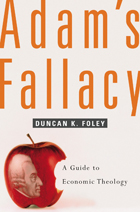
This book could be called “The Intelligent Person’s Guide to Economics.” Like Robert Heilbroner’s The Worldly Philosophers, it attempts to explain the core ideas of the great economists, beginning with Adam Smith and ending with Joseph Schumpeter. In between are chapters on Thomas Malthus, David Ricardo, Karl Marx, the marginalists, John Maynard Keynes, Friedrich Hayek, and Thorstein Veblen. The title expresses Duncan Foley’s belief that economics at its most abstract and interesting level is a speculative philosophical discourse, not a deductive or inductive science. Adam’s fallacy is the attempt to separate the economic sphere of life, in which the pursuit of self-interest is led by the invisible hand of the market to a socially beneficial outcome, from the rest of social life, in which the pursuit of self-interest is morally problematic and has to be weighed against other ends.
Smith and his successors argued that the market and the division of labor that is fostered by it result in tremendous gains in productivity, which lead to a higher standard of living. Yet the market does not address the problem of distribution—that is, how is the gain in wealth to be divided among the classes and members of society? Nor does it address such problems as the long-run well-being of the planet.
Adam’s Fallacy is beautifully written and contains interesting observations and insights on almost every page. It will engage the reader’s thoughts and feelings on the deepest level.
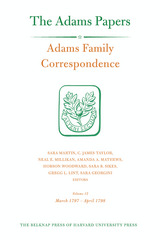
Volume 12 of Adams Family Correspondence, with 276 documents spanning from March 1797 through April 1798, opens with the inauguration of John Adams as president and closes just after details of the XYZ affair are made public in America. Through private networks of correspondence, the Adamses reveal both their individual concerns for the well-being of the nation and the depth of their public and political engagement with the republic. Abigail’s letters to friend and foe demonstrate the important role she played as an unofficial member of the administration. John Quincy and Thomas Boylston’s letters from The Hague, Paris, London, and finally Berlin offer keen observations about the political turmoil in France and its consequences, the shifting European landscape as a result of the war, and court life in Berlin following the coronation of Frederick William III.
In the midst of crisis, the family’s domestic life and personal connections challenged and sustained them. The marriage of John Quincy and Louisa Catherine Johnson in London in July 1797 gave the family cause for celebration, while John’s appointment of John Quincy as U.S. minister to Prussia created a minor rift as the scrupulous younger Adams struggled with concerns about nepotism. Visits between the elder Adamses and their children Nabby and Charles in New York provided welcome distractions, even as John and Abigail worried about Nabby’s domestic situation. With the characteristic candor and perception expected from the Adamses, this volume again features forthright commentary from one family at the center of it all.
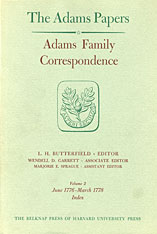
The Adams Family Correspondence, L. H. Butterfield writes, “is an unbroken record of the changing modes of domestic life, religious views and habits, travel, dress, servants, food, schooling, reading, health and medical care, diversions, and every other conceivable aspect of manners and taste among the members of a substantial New England family who lived on both sides of the Atlantic and wrote industriously to each other over a period of more than a century.” These volumes are the first in the estimated twenty or more in Series 2 of The Adams Papers.
Including about six hundred letters to and from various members of the family, the Adams Family Correspondence begins with a series of hitherto unpublished courtship letters between John Adams and Abigail Smith. The weekly and sometimes daily reports by Adams of what was going on in the Continental Congress during the years 1774–1777 are a far fuller and franker record than has been available before. His wife’s letters in reply recount her difficulties in raising a family of young children and operating a farm while war went on not far from her doorstep, refugees inundated Braintree, local epidemics raged, prices soared, and goods and labor became ever scarcer. We learn for the first time that amid these distractions Abigail lost a baby daughter, that getting herself and four children inoculated against smallpox was an agonizing ordeal of months in 1776, that after Burgoyne’s defeat at Saratoga she wrote a long, lecturing letter to her single relative who had chosen the Loyalist side, and that her comments on blundering politicos, lax generals, and unpatriotic neighbors were more frequent and incisive than has been supposed.
Thinking her letters too careless and too intimate for preservation, Abigail Adams pleaded at the end of one of them, written a couple of months before the Declaration of Independence was voted and while British warships hovered within range of her house, “I wish you would burn all my Letters.” To which John Adams replied, “The conclusion of your Letter made my Heart throb, more than a Cannonade would. You bid me burn your Letters. But I must forget you first.”
So he faithfully kept hers, she kept his, and they both kept their children’s. Their grandson Charles Francis Adams chose some of these for publication in a succession of small editions in the nineteenth century, but he was highly selective, and he discreetly pruned away from the letters that he printed much that is both revealing and engaging. Here, as is the practice with all the Adams documents in this edition, every letter used is given in full. The second of these first volumes ends in March 1778 with John Adams on a Continental frigate bound for his first diplomatic mission in Europe, accompanied by his ten-year-old son, John Quincy.
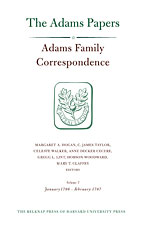
This volume continues the incredible family saga of the Adamses of Massachusetts as told through their myriad letters to one another, to their extended family, and to such other notable correspondents as Thomas Jefferson and Mercy Otis Warren. The book opens in January 1786, when John and Abigail resided at Grosvenor Square in London, partaking of the English social scene, while John made slow progress on negotiations for an Anglo-American commercial treaty. Daughter Abigail ("Nabby"), also in London, had begun a courtship with William Stephens Smith that would culminate in their marriage in June 1786. Back in Massachusetts, John Quincy had rejoined his brothers Charles and Thomas, entered Harvard College, and begun to make preparations to study law.
Writing back and forth across the Atlantic, the Adamses interspersed observations about their own family life--births and deaths, illnesses and marriages, new homes and new jobs, education and finances--with commentary on the most important social and political events of their day, from the scandals in the British royal family to the deteriorating political situation in Massachusetts that eventually culminated in Shays' Rebellion. As in the previous volumes in this series of the Adams Papers, the correspondence presented here offers a unique perspective on the eighteenth century from a preeminent American family.
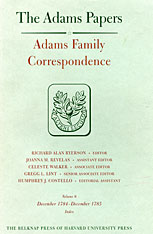
“I cannot O! I cannot be reconcil’d to living as I have done for 3 years past… Will you let me try to soften, if I cannot wholy releave you, from your Burden of Cares and perplexities?” So begins Abigail Adams’s correspondence to her husband in these volumes: a plea to end their long separation, as John Adams represented the United States in Europe while Abigail tended to family and farm in Massachusetts, and passed on to John crucial political information from Congress.
In October 1782, the Adams family was as widely scattered as it would ever be, with young John Quincy Adams in St. Petersburg, John at The Hague, and Abigail in Braintree with her daughter and younger sons. With the summer of 1784, however, Abigail would have her fondest wish, as most of the family reunited to spend nearly a year together in Europe. As the Adams family traveled, and as the children came of age, so their correspondence expanded to include an ever larger and more fascinating range of Cultural topics and international figures. The record of this remarkable expansion, these volumes document John Adams’s diplomatic triumphs, his wife and daughter’s participation in the cosmopolitan scenes of Paris and London, and his son John Quincy’s travels in Europe and America. These pages also welcome Thomas Jefferson, who soon became one of Abigail’s closest friends, into the family correspondence. From the intimacies of the children’s education, sentimental and worldly, to the details of the firm friendship between Abigail and Madame Lafayette, to the grand drama of Edmund Burke and William Pitt the Younger debating in Parliament, the contents of these letters draw an incredibly rich picture of international life in the 1780s and an incomparable portrait of America’s first family of politics and letters.
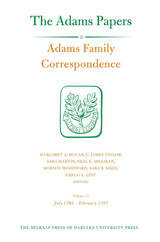
The letters in this volume of Adams Family Correspondence span the period from July 1795 to the eve of John Adams’s inauguration, with the growing partisan divide leading up to the election playing a central role. The fiery debate over funding the Jay Treaty sets the political stage, and the caustic exchanges between Federalists and Democratic-Republicans only grow as rumors surface of George Washington’s impending retirement. From Philadelphia, John’s equanimity in reporting to Abigail and his children on the speculation about the presidential successor gives way to expectation and surprise at the voracity of electioneering among political allies and opponents alike. Although remaining in Quincy throughout this period, Abigail offers keen, even acerbic, commentary on these national events.
From Europe, John Quincy and Thomas Boylston shed light on the rise of the French Directory, the shifts in the continental war, and the struggles within the Batavian government. Their letters also testify to the broader scale of the U.S. presidential election by chronicling French and British attempts to influence American politics. On a more personal note, John Quincy’s engagement to Louisa Catherine Johnson in London opens the next great collection of correspondence documenting the Adams family saga.

John and Abigail Adams remained fully engaged in American political life after they left Washington, DC, for retirement in Quincy. A highlight of Volume 15 of Adams Family Correspondence is a series of letters between Abigail Adams and Thomas Jefferson that debated fundamental questions of the nation’s tumultuous early years. A new generation rose in prominence in the period covered in the volume, with John Quincy Adams returning from abroad to take a seat in the United States Senate just in time to break with the Federalists and support the Louisiana Purchase. The family commented on other events of the era—Jefferson’s dismantling of John Adams’s judicial reforms, the mobilization of the US Navy for the Barbary wars, the growing bane of British impressment, and the duel that killed Alexander Hamilton.
Equally compelling family stories emerge in the volume’s 251 letters. The failure of a British banking firm proved calamitous to the family’s finances, compelling John Quincy to quietly finance his parents’ retirement. Thomas Boylston Adams, acting as an occasional editor of the Port Folio, carved out his public persona as a man of letters. Louisa Catherine Adams wrote of motherhood and adjusting to a new country of residence while providing a spirited perspective on Washington society. As always, the heart of Adams Family Correspondence is Abigail Adams, who survived a near-fatal fall to continue providing letters of insight and wit that once again show why the correspondence of the Adams family is a national treasure.

John and Abigail Adams’ reflections on an emerging nation as they move into the new President’s House in Washington, D.C., are a highlight of the nearly 280 letters written over seventeen months printed in volume 14 of Adams Family Correspondence. The volume opens with the Adamses’ public and private expressions on the death of George Washington and concludes with John’s defeat in the contentious presidential election of 1800. Electoral College maneuvering, charges of sedition, and state-by-state strategizing are debated by the Adamses and their correspondents as the election advances toward deadlock and finally victory for Thomas Jefferson in the House of Representatives. John’s retirement from public life had some sweet mixed with the bitter. The U.S. mission to France resulted in the Convention of 1800 that ended the Quasi-War and the so-called midnight appointments at the close of his presidency ushered in the transformative U.S. Supreme Court era of John Marshall, a coda anticipated in Abigail’s request to John in the final days of his administration—“I want to see the list of judges.”
The domestic life of the Adamses was equally dynamic. Abigail and John endured the crushing loss of their son Charles, whose struggle with alcohol ended in repudiation and death in New York. Son Thomas Boylston and daughter Nabby spent the period in relative stability, while John Quincy chronicled a tour of Silesia in letters home from Europe. At the volume’s close, the correspondence between John and Abigail comes to an end. As they retired to Quincy, their rich observations on the formation of the American republic would continue in letters to others if not to each other.

The almost 300 letters in volume 13 of Adams Family Correspondence were written during seventeen tumultuous months of John Adams’s presidency. Consumed with executive duties, he depended on surrogates for much of his correspondence with family members. From Quincy, an ailing Abigail Adams wrote frequent letters to Philadelphia and received lively responses from son Thomas Boylston and the president’s secretary, nephew William Smith Shaw. These letters attest to John’s popularity in the wake of the XYZ Affair. However, they also chronicle passage of the Alien and Sedition Acts and the Kentucky and Virginia Resolutions, which laid the groundwork for future debates on the relative roles of state and federal governments. Following the break in diplomacy with France, John sensed a change in the footing of the French, acted unilaterally in ordering a second mission to seek a negotiated settlement of the Quasi-War, and faced widespread skepticism about his foreign policy as his envoys departed for Europe.
John and Abigail lamented yet another absence from each other. After completing service in Berlin as secretary to diplomat John Quincy, Thomas Boylston established himself as a Philadelphia lawyer, offering thoughtful commentary on political life in the capital. From his post in Prussia, John Quincy struggled with his brother Charles’s mismanagement of his financial affairs, but his letters also provide detailed updates on developments in Europe, including Napoleon’s invasion of Egypt. The candid letters of John and Abigail Adams and their children offer a rich perspective on life in America during its infancy.

This volume offers over 300 letters from the irrepressible Adamses, including many between John and Abigail never before printed. As always, Adams family members serve as important observers of and commentators on national and international events, from America’s growing tensions with Britain and France to its internal struggles with increasingly virulent political factionalism and the Whiskey Rebellion. John, languishing as vice president in Philadelphia, reported extensively on congressional debates and growing divisions within the Washington administration but also found time to improve his sons’ legal education. Abigail’s letters juxtapose her own political insights with lively accounts of her farm management and the day-to-day happenings in Quincy.
The most significant event of the period for the Adams clan was John Quincy’s appointment as U.S. minister resident at The Hague, the beginning of a long and storied diplomatic career. Accompanying him overseas was his brother Thomas Boylston, the only Adams child who had not yet seen Europe. Arriving just as the French Army began its final march into the Netherlands, John Quincy and Thomas Boylston became first-hand observers of the European war and the impact of the French Revolution on the broader society. Back in the United States, Charles continued to build his legal career, expanding his law office and acquiring two clerks, while Nabby’s family grew with the birth of the Adamses’ first granddaughter, Caroline Amelia Smith.

The years 1790 to 1793 marked the beginning of the American republic, a contentious period as the nation struggled to create a functioning government amid increasingly bitter factionalism. On the international stage, the turmoil of the French Revolution raised important questions about the nature of government. As usual, the Adams family found itself in the midst of it all. Vice President John Adams chaired Senate sessions even as he was prevented from participating in any meaningful fashion. Abigail joined him when her health permitted, but even from afar she provided important advice and keen observations on politics and society.
All four Adams children are well represented here, especially Charles and Thomas Boylston, who, for the first time, appear as correspondents in their own right. Both embarked on legal careers, Charles in New York and Thomas in Philadelphia, while John Quincy did the same in Boston. Daughter Nabby cared for her growing family as her ambitious husband, William Stephens Smith, pursued financial schemes. This volume offers both insight into the family and the frank commentary on life that readers have come to expect from the Adamses.

By early 1787, as this latest volume of the award-winning series Adams Family Correspondence opens, John and Abigail Adams were eagerly planning their return home to Massachusetts from Great Britain, frustrated by John's lack of progress in his diplomatic mission and anxious for a reunion with family and friends. Arriving in Massachusetts in mid-1788, they anticipated a quiet retirement from government service as they returned to running their farm. But they barely had time to settle in before they were pulled back into the public sphere by John's election as the first vice president under the new Constitution. Moving to New York City in 1789 with their daughter Nabby, and her family, John and Abigail found themselves once again center stage in American political life.
The Adamses serve as prescient and thoughtful observers of the world around them, from the manners and mores of English court life to the political intrigues of the new federal government in New York. Beyond that wider world, however, these letters observe the more intimate domestic concerns of a New England family. With more of the forthright candor that marks the Adamses' correspondence, this volume offers a unique perspective on a crucial period in American history.

The letters in these volumes, written from both sides of the Atlantic, addressed by and to members of the Adams family, chronicle nearly five years of its history, They were years in which John Adams in successive missions to Europe, accompanied first by one son, then by two, initiated what would be a continuing role for Adamses in three generadons: representing their country and advancing its interests in the capitals of Europe.
John Adams, a troubled but stouthearted Yankee lawyer on the vast new scene of Europe, though always circumspect in familial correspondence in referring to public matters, provides, in his revealing letters about his own health and state of mind, sufficient insight into the difficult relations among the American commissioners, the designs of America's allies, and the diplomatic failures and triumphs he experienced in Paris and the Netherlands to permit some reevaluations of purposes and tactics. With these high matters are mingled the rigors and rewards of travel, concern with his sons' education, books for their reading, Dutch cloth and ribbons for his wife.
Whether Mrs. Adams' letters relate to the upbringing of children, the problems of wartime taxes and inflation, the inferior roles assigned to American women, or her wide historical reading, they bear the marks of distinction of mind and mastery of language that make them timeless.
If the letters of these two are central, those written by others are hardly less interesting, relating as they do to the concerns of young John Quincy at school in Levden and his observations on his way to and during his stay in St. Petersburg at age fourteen: to the adventure-filled return voyage of Charles, aged eleven, to America; to the interests of the younger Abigail maturing in Braintree; to the reactions of sturdy patriots to the tides and rumors of war.


The harsh environment of caves--dark, damp, sparse of food--is home to a variety of "bizarre" creatures. Biologists, for their part, often treat these delicate, colorless organisms having no eyes, or at least greatly reduced eyes, as mere oddities with little to tell us about a topic as grand as evolution. Focusing on one cave-dwelling crustacean, Gammarus minus, this book shows that, to the contrary, cave life can provide a valuable empirical model for the study of evolution, particularly adaptation.
Authors David Culver, Thomas Kane, and Daniel Fong marshal many years of extensive research into the genetics, ecology, morphology, and systematics of Gammarus minus. They explain how these biological factors have been shaped by physical constraints, such as the structure and development of caves and karst terrains, groundwater hydrology, and drainage basin patterns. Their work reveals the advantages of caves for studying natural selection: the highly simplified habitats found underground serve as a natural laboratory for the evolutionary biologist, and the distinctive morphological features of cave fauna provide a wealth of data on evolutionary history and natural selection.
A detailed evolutionary study of a single organism in a particular environment, this book advances Gammarus minus as a paradigm for cave colonization and adaptation, and as a general case study of the role of natural selection and adaptation in evolution.
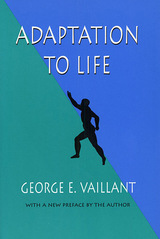
Between 1939 and 1942, one of America's leading universities recruited 268 of its healthiest and most promising undergraduates to participate in a revolutionary new study of the human life cycle. The originators of the program, which came to be known as the Grant Study, felt that medical research was too heavily weighted in the direction of disease, and their intent was to chart the ways in which a group of promising individuals coped with their lives over the course of many years.
Nearly forty years later, George E. Vaillant, director of the Study, took the measure of the Grant Study men. The result was the compelling, provocative classic, Adaptation to Life, which poses fundamental questions about the individual differences in confronting life's stresses. Why do some of us cope so well with the portion life offers us, while others, who have had similar advantages (or disadvantages), cope badly or not at all? Are there ways we can effectively alter those patterns of behavior that make us unhappy, unhealthy, and unwise?
George Vaillant discusses these and other questions in terms of a clearly defined scheme of "adaptive mechanisms" that are rated mature, neurotic, immature, or psychotic, and illustrates, with case histories, each method of coping.

Popular understanding holds that genetic changes create cancer. James DeGregori uses evolutionary principles to propose a new way of thinking about cancer’s occurrence. Cancer is as much a disease of evolution as it is of mutation, one in which mutated cells outcompete healthy cells in the ecosystem of the body’s tissues. His theory ties cancer’s progression, or lack thereof, to evolved strategies to maximize reproductive success.
Through natural selection, humans evolved genetic programs to maintain bodily health for as long as necessary to increase the odds of passing on our genes—but not much longer. These mechanisms engender a tissue environment that favors normal stem cells over precancerous ones. Healthy tissues thwart cancer cells’ ability to outcompete their precancerous rivals. But as our tissues age or accumulate damage from exposures such as smoking, normal stem cells find themselves less optimized to their ecosystem. Cancer-causing mutations can now help cells adapt to these altered tissue environments, and thus outcompete normal cells. Just as changes in a species’ habitat favor the evolution of new species, changes in tissue environments favor the growth of cancerous cells.
DeGregori’s perspective goes far in explaining who gets cancer, when it appears, and why. While we cannot avoid mutations, it may be possible to sustain our tissues’ natural and effective system of defense, even in the face of aging or harmful exposures. For those interested in learning how cancers arise within the human body, the insights in Adaptive Oncogenesis offer a compelling perspective.
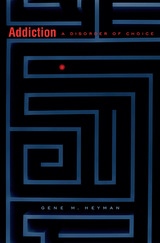
In a book sure to inspire controversy, Gene Heyman argues that conventional wisdom about addiction—that it is a disease, a compulsion beyond conscious control—is wrong.
Drawing on psychiatric epidemiology, addicts’ autobiographies, treatment studies, and advances in behavioral economics, Heyman makes a powerful case that addiction is voluntary. He shows that drug use, like all choices, is influenced by preferences and goals. But just as there are successful dieters, there are successful ex-addicts. In fact, addiction is the psychiatric disorder with the highest rate of recovery. But what ends an addiction?
At the heart of Heyman’s analysis is a startling view of choice and motivation that applies to all choices, not just the choice to use drugs. The conditions that promote quitting a drug addiction include new information, cultural values, and, of course, the costs and benefits of further drug use. Most of us avoid becoming drug dependent, not because we are especially rational, but because we loathe the idea of being an addict.
Heyman’s analysis of well-established but frequently ignored research leads to unexpected insights into how we make choices—from obesity to McMansionization—all rooted in our deep-seated tendency to consume too much of whatever we like best. As wealth increases and technology advances, the dilemma posed by addictive drugs spreads to new products. However, this remarkable and radical book points to a solution. If drug addicts typically beat addiction, then non-addicts can learn to control their natural tendency to take too much.


William Halsey was the most famous naval officer of World War II. His fearlessness in carrier raids against Japan, his steely resolve at Guadalcanal, and his impulsive blunder at the Battle of Leyte Gulf made him the “Patton of the Pacific” and solidified his reputation as a decisive, aggressive fighter prone to impetuous errors of judgment in the heat of battle. In this definitive biography, Thomas Hughes punctures the popular caricature of the “fighting admiral” to reveal the truth of Halsey’s personal and professional life as it was lived in times of war and peace.
Halsey, the son of a Navy officer whose alcoholism scuttled a promising career, committed himself wholeheartedly to naval life at an early age. An audacious and inspiring commander to his men, he met the operational challenges of the battle at sea against Japan with dramatically effective carrier strikes early in the war. Yet his greatest contribution to the Allied victory was as commander of the combined sea, air, and land forces in the South Pacific during the long slog up the Solomon Islands chain, one of the war’s most daunting battlegrounds. Halsey turned a bruising slugfest with the Japanese navy into a rout. Skillfully mediating the constant strategy disputes between the Army and the Navy—as well as the clashes of ego between General Douglas MacArthur and Admiral Chester Nimitz—Halsey was the linchpin of America’s Pacific war effort when its outcome was far from certain.
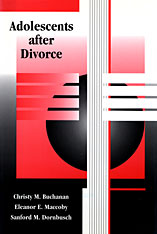
When their parents divorce, some children falter and others thrive. This book asks why. Is it the custody arrangement? A parent's new partner? Conflicts or consistency between the two households? Adolescents after Divorce follows children from 1,100 divorcing families to discover what makes the difference. Focusing on a period beginning four years after the divorce, the authors have the articulate, often insightful help of their subjects in exploring the altered conditions of their lives.
These teenagers come from a wide range of backgrounds. Some are functioning well. Some are faring poorly. The authors examine the full variety of situations in which these children find themselves once the initial disruption has passed--whether parents remarry or repartner, how parents relate to each other and to their children, and how life in two homes is integrated. Certain findings emerge--for instance, we see that remarried new partners were better accepted than cohabiting new partners. And when parents' relations are amicable, adolescents in dual custody are less likely than other adolescents to experience loyalty conflicts. The authors also consider the effects of visitation arrangements, the demands made and the goals set within each home, and the emotional closeness of the residential parent to the child.
A gold mine of information on a topic that touches so many Americans, this study will be crucial for researchers, counselors, lawyers, judges, and parents.
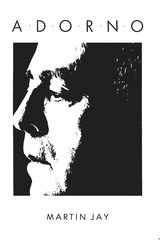
Theodor W. Adorno (1903-1969) was a leading figure in the Frankfurt School and one of this century's most demanding intellectuals. His works, always informed by his variant of Critical Theory that he called Negative Dialectics, is notoriously difficult to understand bu has had an enormous impact on philosophy, sociology, musicology, literary criticism, psychology, and the study of culture.
In an introductory section, Martin Jay gives a brief, lucid account of Adorno's notion of force-field, and of Adorno's extension of Walter Benjamin's concept of constellation. He distinguishes five impulses in Adorno's thinking: his Marxism, his aesthetic modernism, his mandarin cultural conservatism, his anticipation of deconstructionism, and the self-conscious Jewishness that led him to look for redemption and at the same time to refuse any definition of paradise.
Professor Jay devotes the central sections of his book to the major aspects of Adorno's thought--his philosophy, his social theory, and his view of modern culture and aesthetic theory. He has succeeded brilliantly in the task of presenting Adorno's theories in understandable form while remaining true to their unresolved tensions.
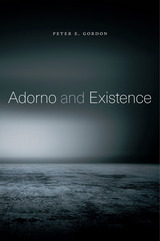
From the beginning to the end of his career, the philosopher Theodor W. Adorno sustained an uneasy but enduring bond with existentialism. His attitude overall was that of unsparing criticism, verging on polemic. In Kierkegaard he saw an early paragon for the late flowering of bourgeois solipsism; in Heidegger, an impresario for a “jargon of authenticity” cloaking its idealism in an aura of pseudo-concreteness and neo-romantic kitsch. Even in the straitened rationalism of Husserl’s phenomenology Adorno saw a vain attempt to break free from the prison-house of consciousness.
“Gordon, in a detailed, sensitive, fair-minded way, leads the reader through Adorno’s various, usually quite vigorous, rhetorically pointed attacks on both transcendental and existential phenomenology from 1930 on…[A] singularly illuminating study.”
—Robert Pippin, Critical Inquiry
“Gordon’s book offers a significant contribution to our understanding of Adorno’s thought. He writes with expertise, authority, and compendious scholarship, moving with confidence across the thinkers he examines…After this book, it will not be possible to explain Adorno’s philosophical development without serious consideration of [Gordon’s] reactions to them.”
—Richard Westerman, Symposium
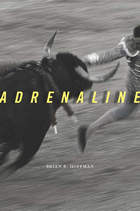
Inducing highs of excitement, anger, and terror, adrenaline fuels the extremes of human experience. A rush empowers superhuman feats in emergencies. Risk-taking junkies seek to replicate this feeling in dangerous recreations. And a surge may literally scare us to death. Adrenaline brings us up to speed on the fascinating molecule that drives some of our most potent experiences.
Adrenaline was discovered in 1894 and quickly made its way out of the lab into clinics around the world. In this engrossing account, Brian Hoffman examines adrenaline in all its capacities, from a vital regulator of physiological functions to the subject of Nobel Prize–winning breakthroughs. Because its biochemical pathways are prototypical, adrenaline has had widespread application in hormone research leading to the development of powerful new drugs. Hoffman introduces the scientists to whom we owe our understanding, tracing the paths of their discoveries and aspirations and allowing us to appreciate the crucial role adrenaline has played in pushing modern medicine forward.
Hoffman also investigates the vivid, at times lurid, place adrenaline occupies in the popular imagination, where accounts of its life-giving and lethal properties often leave the realm of fact. Famous as the catalyst of the “fight or flight” response, adrenaline has also received forensic attention as a perfect poison, untraceable in the bloodstream—and rumors persist of its power to revive the dead. True to the spirit of its topic, Adrenaline is a stimulating journey that reveals the truth behind adrenaline’s scientific importance and enduring popular appeal.

In Calvin’s Geneva, the changes associated with the Reformation were particularly abrupt and far-reaching, in large part owing to John Calvin himself. Adultery and Divorce in Calvin’s Geneva makes two major contributions to our understanding of this time. The first is to the history of divorce. The second is in illustrating the operations of the Consistory of Geneva—an institution designed to control in all its variety the behavior of the entire population—which was established at Calvin’s insistence in 1541. This mandate came shortly after the city officially adopted Protestantism in 1536, a time when divorce became legally possible for the first time in centuries.
Robert Kingdon illustrates the changes that accompanied the earliest Calvinist divorces by examining in depth a few of the most dramatic cases and showing how divorce affected real individuals. He considers first, and in the most detail, divorce for adultery, the best-known grounds for divorce and the best documented. He also covers the only other generally accepted grounds for these early divorces—desertion.
The second contribution of the book, to show the work of the Consistory of Geneva, is a first step toward a fuller study of the institution. Kingdon has supervised the first accurate and complete transcription of the twenty-one volumes of registers of the Consistory and has made the first extended use of these materials, as well as other documents that have never before been so fully utilized.
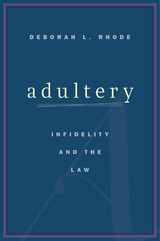
At a time when legal and social prohibitions on sexual relationships are declining, Americans are still nearly unanimous in their condemnation of adultery. Over 90 percent disapprove of cheating on a spouse. In her comprehensive account of the legal and social consequences of infidelity, Deborah Rhode explores why. She exposes the harms that criminalizing adultery inflicts, and she makes a compelling case for repealing adultery laws and prohibitions on polygamy.
In the twenty-two states where adultery is technically illegal although widely practiced, it can lead to civil lawsuits, job termination, and loss of child custody. It is routinely used to threaten and tarnish public officials and undermine military careers. And running through the history of anti-adultery legislation is a double standard that has repeatedly punished women more severely than men. An “unwritten law” allowing a man to avoid conviction for killing his wife’s lover remained common well into the twentieth century. Murder under these circumstances was considered an act of understandable passion.
Adultery has been called the most creative of sins, and novelists and popular media have lavished attention on sexual infidelity. As a focus of serious study, however, adultery has received short shrift. Rhode combines a comprehensive account of the legal and social consequences of adultery with a forceful argument for halting the state’s policing of fidelity.
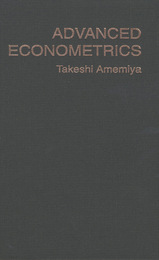
Advanced Econometrics is both a comprehensive text for graduate students and a reference work for econometricians. It will also be valuable to those doing statistical analysis in the other social sciences. Its main features are a thorough treatment of cross-section models, including qualitative response models, censored and truncated regression models, and Markov and duration models, as well as a rigorous presentation of large sample theory, classical least-squares and generalized least-squares theory, and nonlinear simultaneous equation models.
Although the treatment is mathematically rigorous, the author has employed the theorem-proof method with simple, intuitively accessible assumptions. This enables readers to understand the basic structure of each theorem and to generalize it for themselves depending on their needs and abilities. Many simple applications of theorems are given either in the form of examples in the text or as exercises at the end of each chapter in order to demonstrate their essential points.


How did Albert Einstein's ideas shape the imaginations of twentieth-century artists and writers? Are there national differences between styles of scientific research? By what mechanisms is progress in science achieved despite the enormous diversity of individual, often conflicting, efforts?
These are just a few of the questions posed in The Advancement of Science, and Its Burdens. Gerald Holton, one of the century's leading historians of science, continues his analysis of how modern science works and how it influences our world, with particular emphasis on the role of the thematic elements--those often unconscious presuppositions that guide scientific work to success or failure. Many of the conclusions emerge from the author's extensive study of the contributions of Albert Einstein. Indeed, Holton's new introduction for this edition, "Einstein and the Cultural Roots of Modern Science," demonstrates that Einstein's daring main pursuit, the discovery of unity among seemingly disparate aspects of physics, was psychologically supported by a surprising ally: the high literary works in which he immersed himself, above all Goethe's. This case study alone may well be a classic example for studying the interaction of science and culture.

Can—or should—the United States try to promote reform in client states in the Third World? This question, which reverberates through American foreign policy, is at the heart of Adventures in Chaos. A faltering friendly state, in danger of falling to hostile forces, presents the U.S. with three options: withdraw, bolster the existing government, or try to reform it. Douglas Macdonald defines the circumstances that call these policy options into play, combining an analysis of domestic politics in the U. S., cognitive theories of decision making, and theories of power relations drawn from sociology, economics, and political science.
He examines the conditions that promote the reformist option and then explores strategies for improving the success of reformist intervention in the future. In order to identify problems in this policy—and to propose solutions—Macdonald focuses on three case studies of reformist intervention in Asia: China, 1946-1948; the Philippines, 1950-1953; and Vietnam, 1961-1963. Striking similarities in these cases suggest that such policy dilemmas are a function of the global role played by the U.S., especially during the Cold War. Though this role is changing, Macdonald foresees future applications for the lessons his study offers.
A challenge to the conventional wisdom on reformist intervention, Adventures in Chaos—through extensive archival research—displays a theoretical and historical depth often lacking in treatments of the subject.

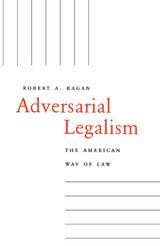
American methods of policy implementation and dispute resolution are more adversarial and legalistic when compared with the systems of other economically advanced countries. Americans more often rely on legal threats and lawsuits. American laws are generally more complicated and prescriptive, adjudication more costly, and penalties more severe. In a thoughtful and cogently argued book, Robert Kagan examines the origins and consequences of this system of "adversarial legalism."
Kagan describes the roots of adversarial legalism and the deep connections it has with American political institutions and values. He investigates its social costs as well as the extent to which lawyers perpetuate it. Ranging widely across many legal fields, including criminal law, environmental regulations, tort law, and social insurance programs, he provides comparisons with the legal and regulatory systems of western Europe, Canada, and Japan that point to possible alternatives to the American methods.
Kagan notes that while adversarial legalism has many virtues, its costs and unpredictability often alienate citizens from the law and frustrate the quest for justice. This insightful study deepens our understanding of law and its relationship to politics in America and raises valuable questions about the future of the American legal system.
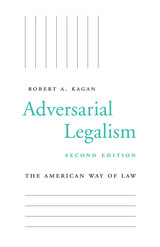
In the first edition of this groundbreaking book, Robert Kagan explained why America is much more adversarial—likely to rely on legal threats and lawsuits—than other economically advanced countries, with more prescriptive laws, more costly adjudications, and more severe penalties. This updated edition also addresses the rise of the conservative legal movement and anti-statism in the Republican party, which have put in sharp relief the virtues of adversarial legalism in its ability to empower citizens, lawyers, and judges to mount challenges to the arbitrary or unlawful exercise of government authority.
“This is a wonderful piece of work, richly detailed and beautifully written. It is the best, sanest, and most comprehensive evaluation and critique of the American way of law that I have seen. Every serious scholar concerned with justice and efficiency, and every policymaker who is serious about improving the American legal order, should read this trenchant and exciting book.”
—Lawrence Friedman, Stanford University
“A tour de force. It is an elegantly written, consistently insightful analysis and critique of the American emphasis on litigation and punitive sanctions in the policy and administrative process.”
—Charles R. Epp, Law and Society Review
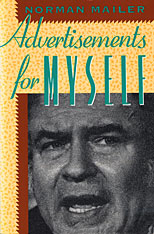

The current debate over the economics of advertising has long focused on two questions. The first concerns the impact of advertising on the relative positions of large and small firms in an industry and thereby on the state of competition. The second examines the role of advertising on consumer purchasing decisions over broad consumption categories. Comanor and Wilson use the modern tools of economic theory and statistics to build and test their hypotheses, and contribute important analytical and empirical evidence on the key issues.
The authors find that consumer decisions are affected substantially by the volume of advertising. Indeed, advertising is a weightier factor than relative prices. Their conclusions surely contribute to the nervousness long felt by economists over the use of consumer preferences to evaluate the welfare implications of resource allocation.
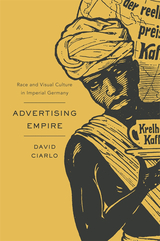
At the end of the nineteenth century, Germany turned toward colonialism, establishing protectorates in Africa, and toward a mass consumer society, mapping the meaning of commodities through advertising. These developments, distinct in the world of political economy, were intertwined in the world of visual culture.
David Ciarlo offers an innovative visual history of each of these transformations. Tracing commercial imagery across different products and media, Ciarlo shows how and why the “African native” had emerged by 1900 to become a familiar figure in the German landscape, selling everything from soap to shirts to coffee. The racialization of black figures, first associated with the American minstrel shows that toured Germany, found ever greater purchase in German advertising up to and after 1905, when Germany waged war against the Herero in Southwest Africa. The new reach of advertising not only expanded the domestic audience for German colonialism, but transformed colonialism’s political and cultural meaning as well, by infusing it with a simplified racial cast.
The visual realm shaped the worldview of the colonial rulers, illuminated the importance of commodities, and in the process, drew a path to German modernity. The powerful vision of racial difference at the core of this modernity would have profound consequences for the future.

On a December morning in 1925, a newspaper journalist reported receiving 25 different handbills in an hour's walk in downtown Tokyo, advertising everything from Western-style clothing and furniture to sweet shops, charity organizations, phonograph recordings, plays, and films. The activities of advertisers, and the new entertainment culture and patterns of consumption that they promoted, helped to define a new urban aesthetic emerging in the 1920s.
This book examines some of the responses of Japanese authors to the transformation of Tokyo in the early decades of the twentieth century. In particular, it explores the themes and formal strategies of the modernist literature that flourished in the 1920s, focusing on the work of Hagiwara Kyojiro (1899-1938) and Hayashi Fumiko (1903-1951). William Gardner shows how modernist works offer new constructions of individual subjectivity amid the social and technological changes that provided the ground for the appearance of "mass media." Hagiwara's conception of the poem and poet as an electric-radio "advertising tower" provides an emblem for the aesthetic tensions and multiple discourses of technology, media, urbanism, commerce, and propaganda that were circulating through the urban environment at the time; while Hayashi's work, with its references to popular songs, plays, and movies, suggests an understanding of "everyday life" as the interface between individual subjectivity and a highly mediated environment.

Three tactical treatises.
Aeneas was perhaps a general, and certainly author of several didactic military works of which the sole survivor is that on defense against siege. From it we can deduce that he was a Peloponnesian of the fourth century BC who served in the Aegean and in Asia Minor and composed the work from direct knowledge and from oral and some literary tradition, possibly in 357–6 BC. It is devoted entirely to defense of fortified places and deals specially with use of defending troops; defensive positions; morale; resistance to attacks and to actual assault; guards; obviation of treachery and revolution; and other subjects.
Asclepiodotus, philosopher and pupil of the Stoic Posidonius, wrote a rather dry but ordered work on tactics as if a subject of the lecture room, based not on personal experience but on earlier manuals. His main subjects were the branches of a military force; infantry; cavalry; chariots; elephants; arms; maneuvers; military evolutions; marching formation. The work ends with words of command.
Onasander (Onasandros), a Platonic philosopher, dedicated his work “The General” to the Roman Veranius, who was a consul in AD 49. The work deals in plain style with the sort of morals and social and military qualities and attitudes expected of a virtuous and militarily successful general. It is also concerned with such matters as his choice of staff; attitude to war; religious duties; military formations; conduct in allied and hostile lands; difficult terrains; camps; drill; spies; guards; deserters; battle formations and maneuvers; and other matters, ending with conduct after victory.
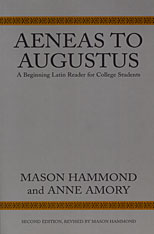

“The classic of all Europe.” —T. S. Eliot
Virgil (Publius Vergilius Maro) was born in 70 BC near Mantua and was educated at Cremona, Milan, and Rome. Slow in speech, shy in manner, thoughtful in mind, weak in health, he went back north for a quiet life. Influenced by the group of poets there, he may have written some of the doubtful poems included in our Virgilian manuscripts. All his undoubted extant work is written in his perfect hexameters. Earliest comes the collection of ten pleasingly artificial bucolic poems, the Eclogues, which imitated freely Theocritus’ idylls. They deal with pastoral life and love. Before 29 BC came one of the best of all didactic works, the four books of Georgics on tillage, trees, cattle, and bees. Virgil’s remaining years were spent in composing his great, not wholly finished, epic the Aeneid, on the traditional theme of Rome’s origins through Aeneas of Troy. Inspired by the Emperor Augustus’ rule, the poem is Homeric in metre and method but influenced also by later Greek and Roman literature, philosophy, and learning, and deeply Roman in spirit. Virgil died in 19 BC at Brundisium on his way home from Greece, where he had intended to round off the Aeneid. He had left in Rome a request that all its twelve books should be destroyed if he were to die then, but they were published by the executors of his will.
The Loeb Classical Library edition of Virgil is in two volumes.

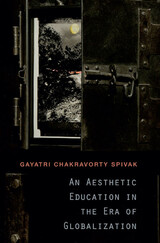
During the past twenty years, the world’s most renowned critical theorist—the scholar who defined the field of postcolonial studies—has experienced a radical reorientation in her thinking. Finding the neat polarities of tradition and modernity, colonial and postcolonial, no longer sufficient for interpreting the globalized present, she turns elsewhere to make her central argument: that aesthetic education is the last available instrument for implementing global justice and democracy.
Spivak’s unwillingness to sacrifice the ethical in the name of the aesthetic, or to sacrifice the aesthetic in grappling with the political, makes her task formidable. As she wrestles with these fraught relationships, she rewrites Friedrich Schiller’s concept of play as double bind, reading Gregory Bateson with Gramsci as she negotiates Immanuel Kant, while in dialogue with her teacher Paul de Man. Among the concerns Spivak addresses is this: Are we ready to forfeit the wealth of the world’s languages in the name of global communication? “Even a good globalization (the failed dream of socialism) requires the uniformity which the diversity of mother-tongues must challenge,” Spivak writes. “The tower of Babel is our refuge.”
In essays on theory, translation, Marxism, gender, and world literature, and on writers such as Assia Djebar, J. M. Coetzee, and Rabindranath Tagore, Spivak argues for the social urgency of the humanities and renews the case for literary studies, imprisoned in the corporate university. “Perhaps,” she writes, “the literary can still do something.”

This study of modern Japan engages the fields of art history, literature, and cultural studies, seeking to understand how the “beautiful woman” (bijin) emerged as a symbol of Japanese culture during the Meiji period (1868–1912). With origins in the formative period of modern Japanese art and aesthetics, the figure of the bijin appeared across a broad range of visual and textual media: photographs, illustrations, prints, and literary works, as well as fictional, critical, and journalistic writing. It eventually constituted a genre of painting called bijinga (paintings of beauties).
Aesthetic Life examines the contributions of writers, artists, scholars, critics, journalists, and politicians to the discussion of the bijin and to the production of a national discourse on standards of Japanese beauty and art. As Japan worked to establish its place in the world, it actively presented itself as an artistic nation based on these ideals of feminine beauty. The book explores this exemplary figure for modern Japanese aesthetics and analyzes how the deceptively ordinary image of the beautiful Japanese woman—an iconic image that persists to this day—was cultivated as a “national treasure,” synonymous with Japanese culture.

Here is a verbal and pictorial illustration of the credo that has guided one of the world's most distinguished architects throughout his career. "Architecture is, and must be, a synthesis of technology and art."
Using nearly 200 drawings and photographs, including plans, interesting details, various stages of construction, and both interior and exterior views of some of his major works, Mr. Nervi shows how his philosophy is put into practice. Referring to most of his important projects, he discusses solutions to various functional and construction requirements where he used precast and cast-in-place concrete, emphasizing the richness of this material. Mr. Nervi stresses the advantages of reinforced concrete, which, he says, allows greater flexibility and makes it easier to satisfy his triple demand of economy, technical correctness, and aesthetic satisfaction.
In predicting the future of architecture he stresses the necessity of architectural solutions that are functionally and technically sound. His final remarks concern his ideas about the proper course of study for architecture students, training that will produce architects with a "far greater technical sense than in the past, a technical sense which results in a constant search for economic efficiency."

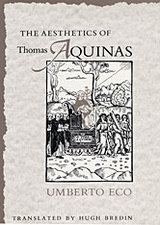
The well-known Italian semiotician and novelist Umberto Eco discloses for the first time to English-speaking readers the unsuspected richness, breadth, complexity, and originality of the aesthetic theories advanced by the influential medieval thinker Thomas Aquinas, heretofore known principally as a scholastic theologian. Inheriting his basic ideas and conceptions of art and beauty from the classical world, Aquinas transformed or modified these ideas in the light of Christian theology and of developments in metaphysics and optics during the thirteenth century.
Setting the stage with an account of the vivid aesthetic and artistic sensibility that flourished in medieval times, Eco examines Aquinas's conception of transcendental beauty, his theory of aesthetic perception or visio, and his account of the three conditions of beauty--integrity, proportion, and clarity--that, centuries later, emerged again in the writings of the young James Joyce. He examines the concrete application of these theories in Aquinas's reflections on God, mankind, music, poetry, and scripture. He discusses Aquinas's views on art and compares his poetics with Dante's. In a final chapter added to the second Italian edition, Eco examines how Aquinas's aesthetics came to be absorbed and superseded in late medieval times and draws instructive parallels between Thomistic methodology and contemporary structuralism. As the only book-length treatment of Aquinas's aesthetics available in English, this volume should interest philosophers, medievalists, historians, critics, and anyone involved in poetics, aesthetics, or the history of ideas.

Callimachus of Cyrene, born ca. 310 BCE, after studying philosophy at Athens, became a teacher of grammar and poetry at Alexandria. Ptolemy II Philadelphus of Egypt (reigned 285–247) made him when still young a librarian in the new library at Alexandria; he prepared a great catalogue of its books.
Callimachus was author of much poetry and many works in prose, but not much survives. His hymns and epigrams are given with works by Aratus and Lycophron in another volume (no. 129) of the Loeb Classical Library. In the present volume are included fragments of the Aetia (Causes), aetiological legends concerning Greek history and customs; fragments of a book of Iambi; 147 fragments of the epic poem Hecale, which described Theseus’s victory over the bull which infested Marathon; and other fragments.
We have no explicit information about the poet Musaeus, author of the short epic poem on Hero and Leander, except that he is given in some manuscripts the title Grammatikos, a teacher learned in the rhetoric, poetry and philosophy of his time. He was obviously a follower of the Egyptian poet Nonnus of Panopolis, of the fifth century AD, and his poem seems also to presuppose the Paraphrase of the Psalms of Pseudo-Apollinarius which can be dated to the period 460–470.
Musaeus takes up a subject whose first detailed treatment is preserved in Ovid’s Heroides (Epistles 18 and 19), but he presents it in a quite different manner. Among the literary antecedents to which this learned grammatikos expressly alludes, the most prominent are Books 5 and 6 of the Odyssey and Plato’s Phaedrus. He draws too on the Hymns of Proclus and the Metaphrasis of the Gospel of St. John by Nonnus. He was most probably a Christian Neoplatonist writing a Christian allegory.

The premier scholar-poet of the Hellenistic age.
Callimachus (ca. 303–ca. 235 BC), a proud and well-born native of Cyrene in Libya, came as a young man to the court of the Ptolemies at Alexandria, where he composed poetry for the royal family; helped establish the Library and Museum as a world center of literature, science, and scholarship; and wrote an estimated 800 volumes of poetry and prose on an astounding variety of subjects, including the Pinakes, a descriptive bibliography of the Library’s holdings in 120 volumes. Callimachus’ vast learning richly informs his poetry, which ranges broadly and reworks the language and generic properties of his predecessors in inventive, refined, and expressive ways. The “Callimachean” style, combining learning, elegance, and innovation and prizing brevity, clarity, lightness, and charm, served as an important model for later poets, not least at Rome for Catullus, Virgil, Horace, Ovid, and the elegists, among others.
This edition, which replaces the earlier Loeb editions by A. W. Mair (1921) and C. A. Trypanis (1954, 1958), presents all that currently survives of and about Callimachus and his works, including the ancient commentaries (Diegeseis) and scholia. Volume I contains Aetia, Iambi, and lyric poems; Volume II Hecale, Hymns, and Epigrams; and Volume III miscellaneous epics and elegies, other fragments, and testimonia, together with concordances and a general index. The Greek text is based mainly on Pfeiffer’s but enriched by subsequently published papyri and the judgment of later editors, and its notes and annotation are fully informed by current scholarship.
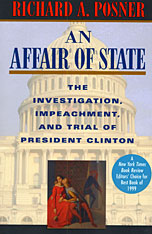
President Bill Clinton’s year of crisis, which began when his affair with Monica Lewinsky hit the front pages in January 1998, engendered a host of important questions of criminal and constitutional law, public and private morality, and political and cultural conflict.
In a book written while the events of the year were unfolding, Richard Posner presents a balanced and scholarly understanding of the crisis that also has the freshness and immediacy of journalism. Posner clarifies the issues and eliminates misunderstandings concerning facts and the law that were relevant to the investigation by Independent Counsel Kenneth Starr and to the impeachment proceeding itself. He explains the legal definitions of obstruction of justice and perjury, which even many lawyers are unfamiliar with. He carefully assesses the conduct of Starr and his prosecutors, including their contacts with the lawyers for Paula Jones and their hardball tactics with Monica Lewinsky and her mother. He compares and contrasts the Clinton affair with Watergate, Iran–Contra, and the impeachment of Andrew Johnson, exploring the subtle relationship between public and private morality. And he examines the place of impeachment in the American constitutional scheme, the pros and cons of impeaching President Clinton, and the major procedural issues raised by both the impeachment in the House and the trial in the Senate. This book, reflecting the breadth of Posner’s experience and expertise, will be the essential foundation for anyone who wants to understand President Clinton’s impeachment ordeal.

This first modern history of American public life after the Civil War is a work of magisterial sweep and sophisticated insight. It will be the standard work on the era for many years to come.
Integrating political, legal, and administrative history on a scale not previously attempted, Morton Keller examines crosscurrents in American institutions during a key transitional period in American history—a period that began with the end of a bloody civil war and ended with the beginning of massive industrialization. At the same time, he vividly captures the energy and optimism of a young country about to burst into the twentieth century.
Keller begins by reviewing the twin legacies of the Civil War: a strengthened belief in an active national government and a vigorous drive toward civil equality. He moves on to the postwar years when centralizing and reformist tendencies were evident everywhere, not only in the Reconstructed South but also in a renewed North. After the 1880s, however, the pendulum began to swing back, and Americans faced the social and economic upheavals of the last decades of the nineteenth century with deeply divided views—an uncertainty that persists in our own day.

What happens when the cerebral--that is, theories of literature and of affect--encounters the corporeal, the human body? In this study by Jane Thrailkill, what emerges from the convergence is an important vision of late-nineteenth-century American realist literature and the role of emotion and physiology in literary criticism.
Affecting Fictions offers a new understanding of American literary realism that draws on neuroscience and cognitive psychology. Thrailkill positions herself against the emotionless interpretations of the New Critics. Taking as her point of departure realist works of medicine, psychology, and literature, she argues that nineteenth-century readers and critics would have taken it for granted that texts engaged both mind and body. Feeling, she writes, is part of interpretation.
Examining literary works by Henry James, Kate Chopin, Charlotte Perkins Gilman, and Oliver Wendell Holmes, Thrailkill explores the connections among the aesthetic, emotion, consciousness, and the body in readings that illuminate lesser-known works such as "Elsie Venner" and that resuscitate classics such as "The Yellow Wallpaper."
Focusing on pity, fear, nervousness, pleasure, and wonder, Thrailkill makes an important contribution to the growing body of critical work on affect and aesthetics, presenting a case for the indispensability of emotions to the study of fiction.
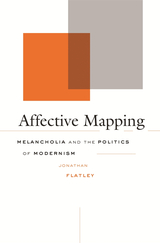
The surprising claim of this book is that dwelling on loss is not necessarily depressing. Instead, Jonathan Flatley argues, embracing melancholy can be a road back to contact with others and can lead people to productively remap their relationship to the world around them. Flatley demonstrates that a seemingly disparate set of modernist writers and thinkers showed how aesthetic activity can give us the means to comprehend and change our relation to loss.
The texts at the center of Flatley’s analysis—Henry James’s Turn of the Screw, W. E. B. Du Bois’s The Souls of Black Folk, and Andrei Platonov’s Chevengur—share with Freud an interest in understanding the depressing effects of difficult losses and with Walter Benjamin the hope that loss itself could become a means of connection and the basis for social transformation. For Du Bois, Platonov, and James, the focus on melancholy illuminates both the historical origins of subjective emotional life and a heretofore unarticulated community of melancholics. The affective maps they produce make possible the conversion of a depressive melancholia into a way to be interested in the world.
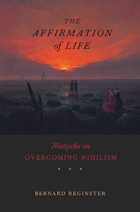
Among all the great thinkers of the past two hundred years, Nietzsche continues to occupy a special place--not only for a broad range of academics but also for members of a wider public, who find some of their most pressing existential concerns addressed in his works. Central among these concerns is the question of the meaning of a life characterized by inescapable suffering, at a time when the traditional responses inspired by Christianity are increasingly losing their credibility. While most recent studies of Nietzsche's works have lost sight of this fundamental issue, Bernard Reginster's book The Affirmation of Life brings it sharply into focus.
Reginster identifies overcoming nihilism as a central objective of Nietzsche's philosophical project, and shows how this concern systematically animates all of his main ideas. In particular, Reginster's work develops an original and elegant interpretation of the will to power, which convincingly explains how Nietzsche uses this doctrine to mount a critique of the dominant Christian values, to overcome the nihilistic despair they produce, and to determine the conditions of a new affirmation of life. Thus, Reginster attributes to Nietzsche a compelling substantive ethical outlook based on the notions of challenge and creativity--an outlook that involves a radical reevaluation of the role and significance of suffering in human existence.
Replete with deeply original insights on many familiar--and frequently misunderstood--Nietzschean concepts, Reginster's book will be essential to anyone approaching this towering figure of Western intellectual history.

Should government try to remedy persistent racial and ethnic inequalities by establishing and enforcing quotas and other statistical goals? Here is one of the most incisive books ever written on this difficult issue. Nathan Glazer surveys the civil rights tradition in the United States; evaluates public policies in the areas of employment, education, and housing; and questions the judgment and wisdom of their underlying premises—their focus on group rights, rather than individual rights. Such policies, he argues, are ineffective, unnecessary, and politically destructive of harmonious relations among the races.
Updated with a long, new introduction by the author, Affirmative Discrimination will enable citizens as well as scholars to better understand and evaluate public policies for achieving social justice in a multiethnic society.
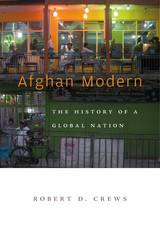
Rugged, remote, riven by tribal rivalries and religious violence, Afghanistan seems to many a country frozen in time and forsaken by the world. Afghan Modern presents a bold challenge to these misperceptions, revealing how Afghans, over the course of their history, have engaged and connected with a wider world and come to share in our modern globalized age.
Always a mobile people, Afghan travelers, traders, pilgrims, scholars, and artists have ventured abroad for centuries, their cosmopolitan sensibilities providing a compass for navigating a constantly changing world. Robert Crews traces the roots of Afghan globalism to the early modern period, when, as the subjects of sprawling empires, the residents of Kabul, Kandahar, and other urban centers forged linkages with far-flung imperial centers throughout the Middle East and Asia. Focusing on the emergence of an Afghan state out of this imperial milieu, he shows how Afghan nation-making was part of a series of global processes, refuting the usual portrayal of Afghans as pawns in the “Great Game” of European powers and of Afghanistan as a “hermit kingdom.”
In the twentieth century, the pace of Afghan interaction with the rest of the world dramatically increased, and many Afghan men and women came to see themselves at the center of ideological struggles that spanned the globe. Through revolution, war, and foreign occupations, Afghanistan became even more enmeshed in the global circulation of modern politics, occupying a pivotal position in the Cold War and the tumultuous decades that followed.
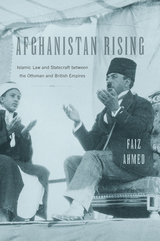
Debunking conventional narratives of Afghanistan as a perennial war zone or marginal frontier, Faiz Ahmed presents a vibrant account of the first Muslim-majority country to gain independence from the British Empire, form a fully sovereign government, and promulgate an original constitution after the fall of the Ottoman Empire.
Far from a landlocked wilderness, turn-of-the-twentieth-century Afghanistan was a magnet for itinerant scholars and emissaries shuttling between Ottoman and British imperial domains. Tracing Afghans’ longstanding but seldom examined scholastic ties to Istanbul, Damascus, and Baghdad, as well as greater Delhi and Lahore, Ahmed vividly describes how the Kabul court recruited jurists to craft a modern state within the interpretive traditions of Islamic law and ethics, or shariʿa, and international legal norms. Beginning with the first Ottoman mission to Kabul in 1877, and culminating with parallel independence struggles in Afghanistan, India, and Turkey after World War I, this rich narrative explores encounters between diverse streams of Muslim thought and politics—from Young Turk lawyers to Pashtun clerics; Ottoman Arab officers to British Raj bureaucrats; and the last caliphs to a remarkable dynasty of Afghan kings and queens.
By unearthing a lost history behind Afghanistan’s independence and first constitution, Ahmed shows how debates today on Islam, governance, and the rule of law have deep roots in a beleaguered land. Based on research in six countries and as many languages, Afghanistan Rising rediscovers a time when Kabul stood proudly for anticolonial coalitions, self-determination, and contested visions of reform in the Global South and Islamicate world.

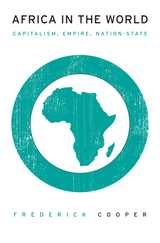
At the Second World War’s end, it was clear that business as usual in colonized Africa would not resume. W. E. B. Du Bois’s The World and Africa, published in 1946, recognized the depth of the crisis that the war had brought to Europe, and hence to Europe’s domination over much of the globe. Du Bois believed that Africa’s past provided lessons for its future, for international statecraft, and for humanity’s mastery of social relations and commerce. Frederick Cooper revisits a history in which Africans were both empire-builders and the objects of colonization, and participants in the events that gave rise to global capitalism.
Of the many pathways out of empire that African leaders envisioned in the 1940s and 1950s, Cooper asks why they ultimately followed the one that led to the nation-state, a political form whose limitations and dangers were recognized by influential Africans at the time. Cooper takes account of the central fact of Africa’s situation—extreme inequality between Africa and the western world, and extreme inequality within African societies—and considers the implications of this past trajectory for the future. Reflecting on the vast body of research on Africa since Du Bois’s time, Cooper corrects outdated perceptions of a continent often relegated to the margins of world history and integrates its experience into the mainstream of global affairs.
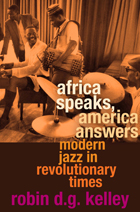
In Bedford-Stuyvesant, Brooklyn, pianist Randy Weston and bassist Ahmed Abdul-Malik celebrated with song the revolutions spreading across Africa. In Ghana and South Africa, drummer Guy Warren and vocalist Sathima Bea Benjamin fused local musical forms with the dizzying innovations of modern jazz. These four were among hundreds of musicians in the 1950s and ’60s who forged connections between jazz and Africa that definitively reshaped both their music and the world.
Each artist identified in particular ways with Africa’s struggle for liberation and made music dedicated to, or inspired by, demands for independence and self-determination. That music was the wild, boundary-breaking exultation of modern jazz. The result was an abundance of conversation, collaboration, and tension between African and African American musicians during the era of decolonization. This collective biography demonstrates how modern Africa reshaped jazz, how modern jazz helped form a new African identity, and how musical convergences and crossings altered politics and culture on both continents.
In a crucial moment when freedom electrified the African diaspora, these black artists sought one another out to create new modes of expression. Documenting individuals and places, from Lagos to Chicago, from New York to Cape Town, Robin Kelley gives us a meditation on modernity: we see innovation not as an imposition from the West but rather as indigenous, multilingual, and messy, the result of innumerable exchanges across a breadth of cultures.
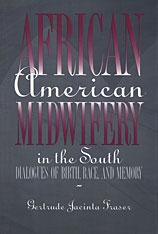
Starting at the turn of the century, most African American midwives in the South were gradually excluded from reproductive health care. Gertrude Fraser shows how physicians, public health personnel, and state legislators mounted a campaign ostensibly to improve maternal and infant health, especially in rural areas. They brought traditional midwives under the control of a supervisory body, and eventually eliminated them. In the writings and programs produced by these physicians and public health officials, Fraser finds a universe of ideas about race, gender, the relationship of medicine to society, and the status of the South in the national political and social economies.
Fraser also studies this experience through dialogues of memory. She interviews members of a rural Virginia African American community that included not just retired midwives and their descendants, but anyone who lived through this transformation in medical care--especially the women who gave birth at home attended by a midwife. She compares these narrations to those in contemporary medical journals and public health materials, discovering contradictions and ambivalence: was the midwife a figure of shame or pride? How did one distance oneself from what was now considered "superstitious" or "backward" and at the same time acknowledge and show pride in the former unquestioned authority of these beliefs and practices?
In an important contribution to African American studies and anthropology, African American Midwifery in the South brings new voices to the discourse on the hidden world of midwives and birthing.

The middle class black women who people Judith Weisenfeld’s history were committed both to social action and to institutional expression of their religious convictions. Their story provides an illuminating perspective on the varied forces working to improve quality of life for African Americans in crucial times.
When undertaking to help young women migrating to and living alone in New York, Weisenfeld’s protagonists chose to work within a national evangelical institution. Their organization of a black chapter of the Young Women’s Christian Association in 1905 was a clear step toward establishing a suitable environment for young working women; it was also an expression of their philosophy of social uplift. And predictably it was the beginning of an equal rights struggle—to work as equals with white women activists. Growing and adapting as New York’s black community evolved over the decades, the black YWCA assumed a central role both in the community’s religious life and as a training ground for social action. Weisenfeld’s analysis of the setbacks and successes closes with the National YWCA’s vote in 1946 to adopt an interracial charter and move toward integration of local chapters, thus opening the door to a different set of challenges for a new generation of black activists.
Weisenfeld’s account gives a vibrant picture of African American women as significant actors in the life of the city. And it bears telling witness to the religious, class, gender, and racial negotiations so often involved in American social reform movements.

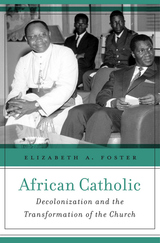
Winner of the John Gilmary Shea Prize
A groundbreaking history of how Africans in the French Empire embraced both African independence and their Catholic faith during the upheaval of decolonization, leading to a fundamental reorientation of the Catholic Church.
African Catholic examines how French imperialists and the Africans they ruled imagined the religious future of French sub-Saharan Africa in the years just before and after decolonization. The story encompasses the political transition to independence, Catholic contributions to black intellectual currents, and efforts to alter the church hierarchy to create an authentically “African” church.
Elizabeth Foster recreates a Franco-African world forged by conquest, colonization, missions, and conversions—one that still exists today. We meet missionaries in Africa and their superiors in France, African Catholic students abroad destined to become leaders in their home countries, African Catholic intellectuals and young clergymen, along with French and African lay activists. All of these men and women were preoccupied with the future of France’s colonies, the place of Catholicism in a postcolonial Africa, and the struggle over their personal loyalties to the Vatican, France, and the new African states.
Having served as the nuncio to France and the Vatican’s liaison to UNESCO in the 1950s, Pope John XXIII understood as few others did the central questions that arose in the postwar Franco-African Catholic world. Was the church truly universal? Was Catholicism a conservative pillar of order or a force to liberate subjugated and exploited peoples? Could the church change with the times? He was thinking of Africa on the eve of Vatican II, declaring in a radio address shortly before the council opened, “Vis-à-vis the underdeveloped countries, the church presents itself as it is and as it wants to be: the church of all.”
READERS
Browse our collection.
PUBLISHERS
See BiblioVault's publisher services.
STUDENT SERVICES
Files for college accessibility offices.
UChicago Accessibility Resources
home | accessibility | search | about | contact us
BiblioVault ® 2001 - 2024
The University of Chicago Press


